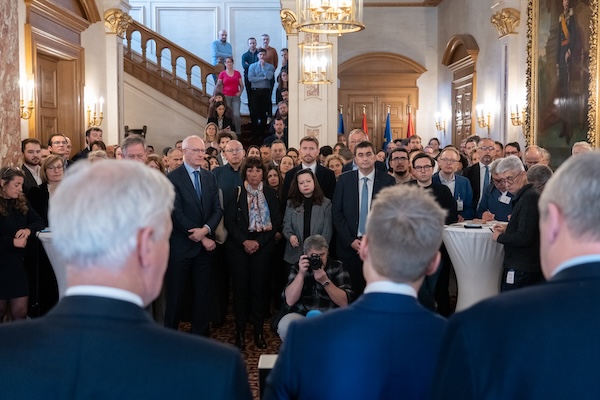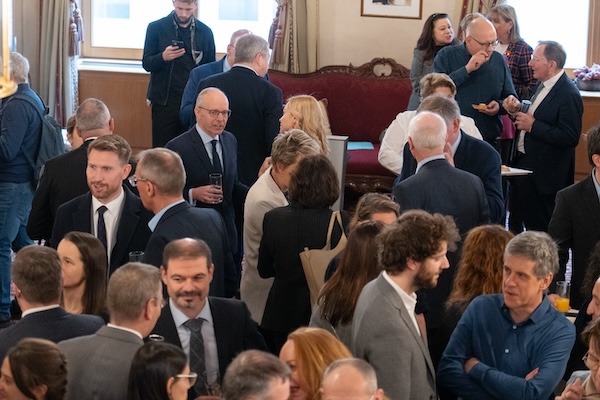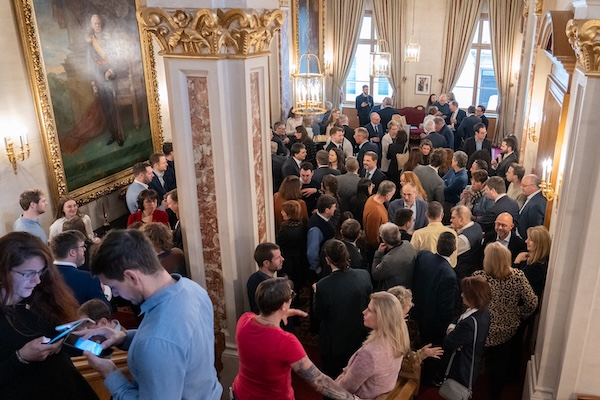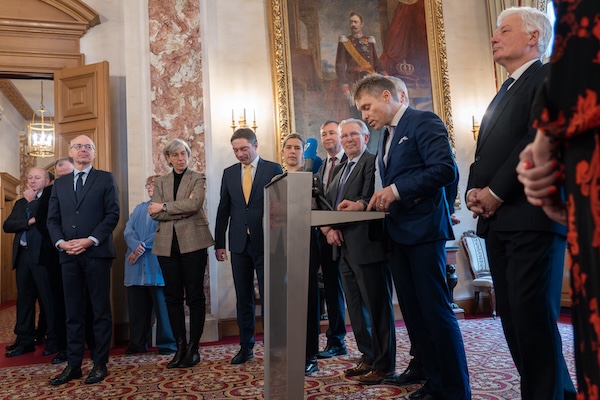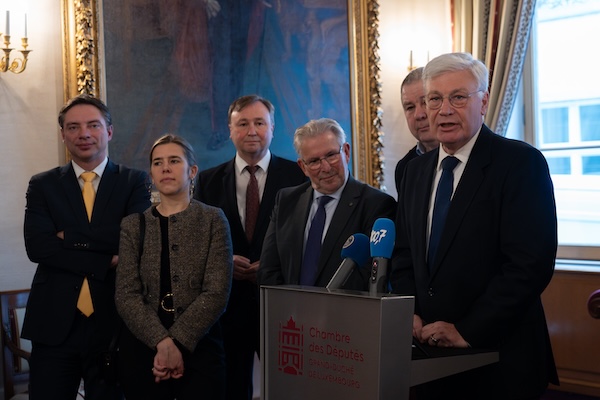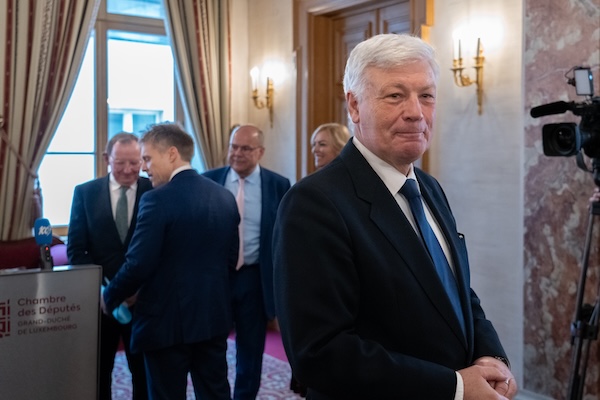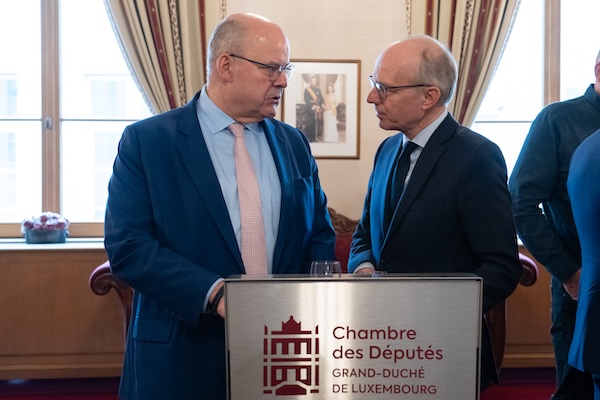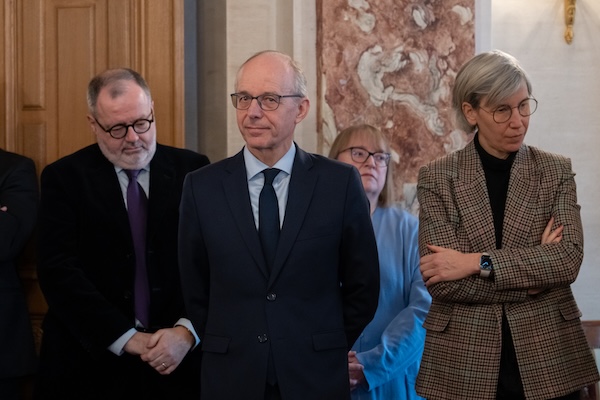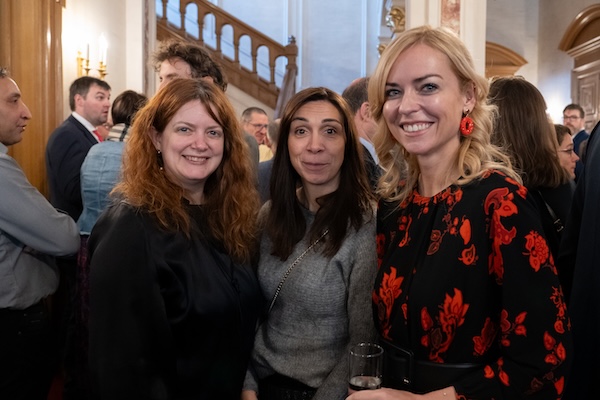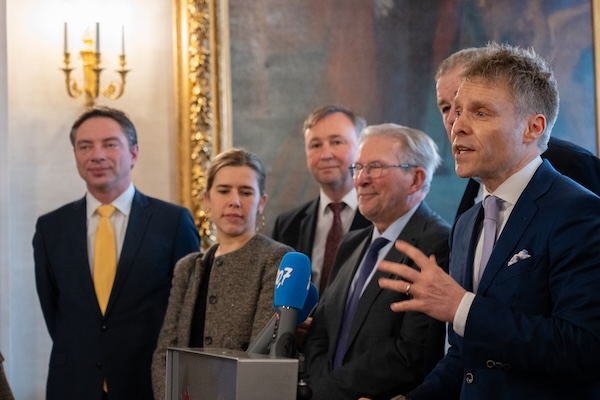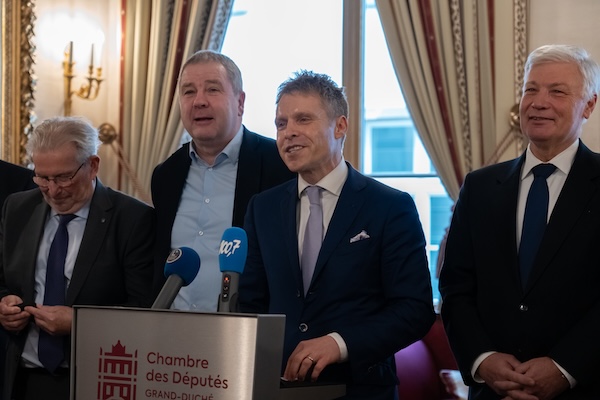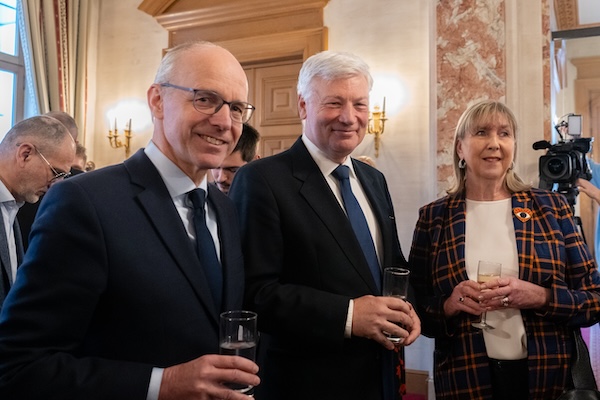 (L-R): PM Luc Frieden; Claude wiseler, President of the Parliament, Mayor Lydie Polfer;
Credit: Ali Sahib, Chronicle.lu
(L-R): PM Luc Frieden; Claude wiseler, President of the Parliament, Mayor Lydie Polfer;
Credit: Ali Sahib, Chronicle.lu
On Monday 6 January 2025, Luxembourg’s Chamber of Deputies held its annual New Year reception in the Parliament building in Luxembourg-Ville.
The event attracted members of the Chamber of Deputies, the media and many dignitaries, including Luxembourg’s Prime Minister Luc Frieden, Minister of Justice Elisabeth Margue, and Mayor Lydie Polfer.
Laurent Scheeck, Secretary General of the Chamber of Deputies, gave the opening address in Luxembourgish and this was followed by a speech from the President of the Chamber of Deputies, Claude Wiseler.
Following the presentation, Chronicle.lu had the opportunity to speak with Laurent Scheeck, who discussed some of the major challenges facing the Parliament, including democratic values that are under pressure both in Luxembourg and within Europe.
He spoke of the efforts being made by Luxembourg’s Parliament to react and respond to the challenges it faces through improved communication, being present on both national and international stages and by making efforts to respond to criticism in a constructive way, with more transparency and openness. Part of this transparency is the live broadcasting, since April 2024, of five of the 28 parliamentary committee meetings. These are also available to watch on demand. The broadcasts are currently in Luxembourgish only, but Laurent Scheeck confirmed that a two to three year project is currently underway to provide subtitles, initially in French and then in English. This will allow the Chamber to be accessible to a greater cohort of Luxembourg inhabitants and workers.
As part of the increased openness, members of the public may also attend a session in person, from the visitor's balcony at the Chamber of Deputies. Guided tours are also available. The petition system is open to all those living and working in Luxembourg, regardless of citizenship, and is another example of the inclusivity the Chamber of Deputies is promoting. He emphasised the importance of the petition system that includes not just the electorate of 300,000 but also the 650,000 people living in Luxembourg as well as the 200,000 cross-border workers.

